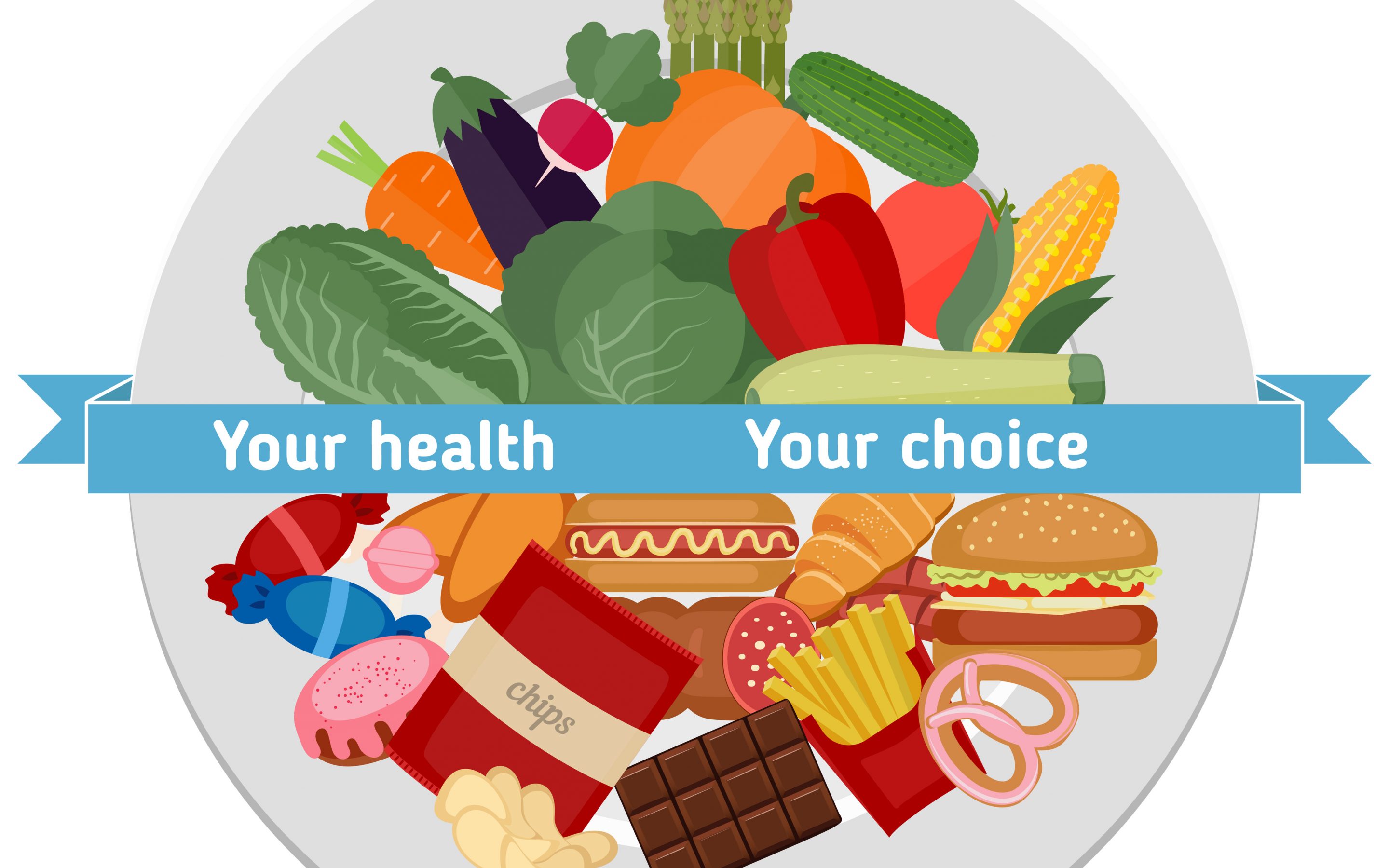Eat Well to Live Well ~
Often, we think of the word diet to mean something that we're going to go on for a period of time to accomplish a weight goal. When in fact, your diet is whatever you eat. Your diet largely determines how you feel, how you look, and your overall health and vitality. Your diet is with you every minute of every day and will remain with you forever. Therefore, food plays a vital role in your life. You need it to survive and when you make healthy food choices, you contribute to not just merely surviving, but thriving. This is why it’s so important to pay attention to what you eat and to nourish yourself with the foods that best serve you and the needs of your body.
We live in a time where people are busier than ever and convenience has become the main priority for most; internet banking, stores that stay open 24 hours a day and convenience foods. With pre-packaged foods lining the shelves of our grocery stores and fast food restaurants found on nearly every corner, it's easier than ever to grab food on the go. Food manufacturers and restaurant chains have satisfied our desire to make eating quick and easy. The unfortunate part about this is that many have forgotten that food is fuel and nourishment for the body. It isn’t merely just there to, satisfy a craving or eat something quickly to fill a hungry tummy.
I’d like you to think about this for a moment..... Are you giving your body the best possible nourishment you can? Or, are you just eating something to fill the hunger? Do you find yourself in the trap of convenience eating? Don't get me wrong, I'm not against convenience, in fact, in most cases I love it just like everyone else. However, when it comes to convenience with food, this is a slippery slope.
We all have those times when we just need to order in a pizza. Or, we don’t have time to prepare a real meal, so we rely on some pre-packaged something or other to pop in the microwave or add boiling water to. Convenience foods do come in handy from time-to-time and are there if we need them.
The slope gets slippery when it starts becoming a regular way to eat, rather than an occasional option. It's easy to slide down this slope, I know because I’ve there; I spent decades eating mindlessly, not thinking about where the food I was eating came from or how it was impacting my body and mind. I never bought anything organic or natural. Eating used to be something I did only to fill my hunger, having no consideration for the fact that my mind and body required nutrient-rich foods to thrive. Eating quickly and on the run was the way I ate every day, which meant I spent many years in the trap of convenience eating. My body addicted to the sodium and sugar found in convenience foods.
Food Is A Choice
It’s so easy to forget and to take for granted how hard your body works for you. Every single thing that enters your system has to be processed. From the pollution in the air that you breathe to the foods that you eat; your body is always working with that which it takes in. And although you don’t have choice in everything, you Always have choice in food. When you make healthier food choices, your mind and body are healthier for it. When you fill yourself up with the best, you contribute tremendously to feeling your best. And when you feel your best, your best overflows to those around you.
There are many easy things you can do to better nourish yourself.
Here's 5 easy suggestions that anyone can implement into their current diet and receive benefits from:
- Drink More Water ~ Water is the body’s most important nutrient and it’s so easy to add more of it into your day. So many people live in a state of dehydration without even realizing it. Signs that your body is dehydrated are dizziness, irritability, hunger, headaches, dry lips and dry mouth. Dehydration leads to excess fat, poor muscle tone, decreased digestion efficiency and organ function, increased toxicity, joint and muscle soreness and water retention. To learn 7 easy ways to add more water to your day check out, Are You Dehydrated?
- Enjoy Smoothies ~ I always say a smoothie a day keeps the doctor away! Smoothies are a fantastic way to incorporate more fruits and veggies into your daily diet. They’re quick, easy, nutritious and delicious. Smoothies can be enjoyed as a snack or as a meal, and they're a simple way to increase more of the ‘good stuff’ in your diet. There's an endless supply of smoothie recipes available, making it impossible to feel bored of having a smoothie a day.
- Eat Regularly and Don’t Skip Meals ~ With our busy schedules, it's easy to miss a meal or eat at random times. Or, maybe you believe that by skipping meals you'll be able to fit into that favorite dress that no longer fits. However, when you aren't consistently eating throughout the day, you pay for it (and not in a good way). Your body and mind benefit greatly when you eat regularly and don't skip meals.
- Eat Fresh Food Often ~ When your diet contains as much fresh (hopefully organic) foods as possible, you're consuming less sugar, sodium and chemicals. These are the ingredients required to give food a shelf life. Remember that fresh food, or real food as I like to call it, spoils and goes bad fairly quickly. Foods that can sit on a shelf for a long time contain the added sugars, salts and chemicals that your body can do without. Often the added ingredients end up the being the ones that keep your body addicted to those foods and keep you buying them again and again. And when you think about it, do you really want to consume something that doesn’t expire for a year?
- Read Food Labels ~ Know what you're eating and don’t be fooled by the words on the front of a box. Food companies know what buzz words to use to get you to buy their products. A couple of minutes is all you need to read the ingredients on a food label. This is time well invested, so you know what you’re really eating. Here’s a few tips to help you get started:
- A label that says, ‘made with rye, wheat, or multigrain’ will often contain very little whole grain. Instead look for ‘whole grain’ and/or the word ‘whole’ listed as the first ingredient.
- A label that says, ‘modified, fortified, enriched, added, extra or plus,’ is a label that has been designed to make you think you're buying something that is really good for you. Keep in mind that real food is naturally healthy and doesn’t require ‘modification, enriching or anything extra’ added to it.
- Beware of ‘low fat’ or ‘fat free’ foods as these are also not real food. To get the right consistency, color and flavor of the full fat version, manufacturers need to add stuff in to replace what has been taken out to make that low fat or fat free option. Instead, choose the ‘real deal,’ full fat version and eat it in smaller amounts and less often. For example; it’s not often that I eat butter, however when I do, I always choose butter (organic of course :)) and never margarine.
- So much of our food contains sugar in disguise and we’re often unaware of how much sugar we’re actually consuming. By becoming familiar with all the disguises that sugar has and paying attention to the ingredients listed on packages, you’ll become more sugar conscious. There are 152 different ways to note sugar on a food label; including corn syrup, brown rice syrup, glucose, natural evaporated cane juice and crystalline fructose, to name only a few. Sugar is addictive, the more you have the more your body wants. By learning how to spot sugar on an ingredient list, you can choose to consume it less often.
- While we require sodium, we don't require as much as we're consuming. The majority of sodium consumed comes from the packaged and processed foods that have become the staples in so many diets. Some of the common foods you may be buying that are high in sodium are, canned foods; breads; cheeses; deli meats; packaged sauces; salad dressings and condiments. Many of these high-sodium culprits are easy to make from scratch, such as salad dressing. If you do buy pre-packaged foods, ensure that you drink more water when consuming them. You can also opt for the low sodium option or choose foods that are naturally low in sodium. And of course, much of the foods served in restaurants, in particular fast food restaurants, are loaded with sodium. You might want to try eating out less often or saving it for special occasions only.
That old saying, 'You are what you eat,' really is true. It’s worth the investment of your time to learn more about the ingredients that are in the food you're eating. It benefits you greatly to read food labels and not rely on what manufacturers put on the front of the package. When you make simple changes to your diet and eat well, you contribute to living well.
What's your favorite eat well tip? Please leave a comment below and let me know ~ I'd love to hear from you.
If you love this blog, I'd greatly appreciate you sharing it so that others can benefit from reading it as well. Thank you.
For healthy recipes click here.
Looking for a little guidance to help you live healthier? Join my Mentoring Program, I'd love to assist you on your journey to living well.


